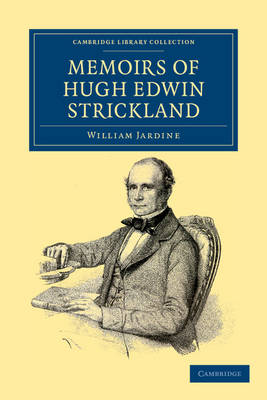Cambridge Library Collection - Zoology
2 total works
Memoirs of Hugh Edwin Strickland, M.A.
by Sir William Jardine and Hugh Edwin Strickland
Published 3 November 2011
Published in 1858, this memoir recounts the life and work of the natural historian and geologist Hugh Edwin Strickland (1811–53). Written by his father-in-law, the Scottish naturalist Sir William Jardine (1800–74), the book covers Strickland's early childhood, his education at Oxford, his involvement in and influence upon the establishment of the Ray Society and his notable academic pursuits in natural history before his life was tragically cut short by a freak railway accident in 1853, when he was just forty-two. The reader will gain an insight into Strickland's character, his scientific acquaintances, including Henslow and Darwin, and his wide-ranging interests in the area of natural history, including geology, zoology, palaeontology and especially ornithology, demonstrated by his study The Dodo and its Kindred (1848). Drawing upon revealing and informative extracts from Strickland's journals throughout, the book also contains a wide selection of Strickland's shorter scientific writings.
The Dodo and its Kindred
by Hugh Edwin Strickland and Alexander Gordon Melville
Published 1 January 2015
Well versed in natural history, particularly geology and ornithology, Hugh Edwin Strickland (1811–53) became fascinated by the dodo and mankind's influence on its extinction. Seeking to investigate this flightless bird and other extinct species from islands in the Indian Ocean, he invited the comparative anatomist Alexander Gordon Melville (1819–1901) to help him separate myth from reality. Divided into two sections, this 1848 monograph begins with Strickland's evaluation of the evidence, including historical reports as well as paintings and sketches, many of which are reproduced. Melville then analyses the osteology of the dodo and Rodrigues solitaire, describing his findings from dissections of the few available specimens and making comparisons with similar species. A seminal work, it correctly concluded that the dodo was more closely related to pigeons than vultures, and the book also inspired others to take up the search for new fossil evidence.

